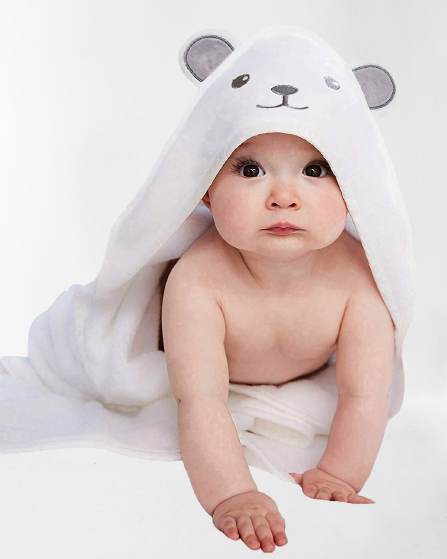WHY YOUR BREASTFED BABY SPIT UP & HOW TO REDUCE IT
WHY YOUR BREASTFED BABY SPIT UP?
Both breast milk and formula commonly
spit up by babies. Infants spit up after meals (sometimes after every meal) and
frequently bring the milk up when they burp. The term "happy spitter"
is used by doctors to describe a baby who spits up but is otherwise healthy,
has no breathing problems, and is thriving and growing well.
Even though this is just one of those
things babies do, there are things you can do to help prevent it and keep your
baby happy. There are also signs to look for that may indicate that spitting up
necessitates medical attention.
What causes babies to spit up?
Because a newborn's digestive system
is still developing, spitting up is more common in the first few months than
later. Milk travels down the throat to the esophagus, then to the stomach, as
babies feed.
The lower esophageal sphincter is a
ring of muscles that connects the esophagus to the stomach. This sphincter
opens to allow milk into the stomach and then closes again, but until about 6
months of age, when it is more mature, this "trap door" isn't as
reliable as it should be. This can result in spit-up due to a milk back flow.
Aside from that, babies spit up for
three different reasons.
Overeating:
Because babies have small stomachs, eating too much or too quickly can be a
problem. A baby who drinks too much milk at each feeding may become bloated,
and the extra milk that his stomach can't hold will have to go somewhere.
Allergies or sensitivities to certain foods or beverages in your diet: Allergens can be passed through
breast milk and cause spit-up in your baby.
Taking in air while eating: When a baby drinks quickly, he or she is also gulping air
along with the milk. This is especially true if you have a strong let-down
reflex or an excessive supply of milk.
Suggestions for Reducing Spit-Ups
You can do a few things to reduce the
likelihood or frequency of your baby spitting up.
Burp Your Newborn baby
Burp your baby during and after each
feeding to help her get rid of the air in her stomach. Because breastfed babies
swallow less air than bottle-fed babies, they may not need to burp after every
feeding. However, if you have a plentiful supply of milk or a very fast milk
flow, this may not be the case. Burping causes babies to spit up. Nonetheless,
this is a valuable measure.
Burping your baby assists in the
release of air swallowed during the feeding. Your baby will feel better after a
burp. Removing air may also free up space in your baby's stomach, allowing you
to continue feeding.
Feedings should be calm and quiet
While breastfeeding, try to keep
distractions, noise, and bright lights to a minimum. Slightly slower feedings
may result in fewer spit-ups. Also, don't bounce or engage in high-intensity
play right after a feeding.
Increase the number of times you feed your baby
If you wait too long between feedings
and your baby is starving, she may overfeed and inhale too much air. Maintain
the recommended amount of milk throughout the day, but consider adjusting your
feeding schedule.
Organize a Strong Let-Down
Your milk may be flowing too fast for
your baby if you have a strong let-down reflex. If possible, nurse your baby in
a reclined position so that the milk is absorbed against gravity. To help slow
down the flow, pump or express some milk from your breasts before starting
feeding.
Before feeding, relieve engorgement
Your breasts may be engorged if you
have too much milk or if your milk supply has not yet adjusted to your baby's
needs. This can cause your breasts to become full and hard, making it difficult
for your baby to latch and form a good seal around your nipple. As a result,
when your baby tries to nurse, he will take in air.
To soften the breast, use a pump or
express some milk before feeding your baby. This will make it easier for your
baby to latch on.
Experiment with different positions
Examine various breastfeeding
positions to see if any are more comfortable for your baby than others. Also,
try to keep your baby's head upright and elevated for at least 30 minutes after
a feeding.
Feeding your baby before he or she
becomes overly hungry is the best way to reduce spit-up. When your baby takes a
break from eating, gently burp him or her. After meals, limit active play and
keep your baby upright for at least 20 minutes. During this time, keep a close
eye on your child.




Comments
Post a Comment